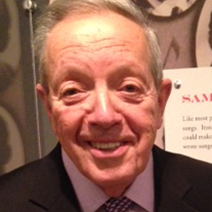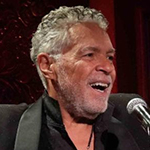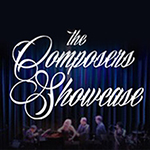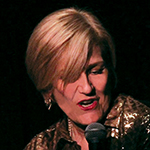Harvey Granat
The Music of Harold Arlen
92nd Street Y, NYC, May 5, 2016
Reviewed by Alix Cohen for Cabaret Scenes
 If Harold Arlen (1905-1986) aka Hyman Arluck, had written nothing else but the iconic “Over the Rainbow” (with E.Y. “Yip” Harburg), he’d still have been worthy of a place in the pantheon. (The song’s coda, “If happy little bluebirds fly…” was, by the way, suggested by Ira Gershwin.) If he had listened to his parents and not run away at the tender age of 15, he would’ve been a cantor like his father. In fact, the composer (and singer) authored over 500 songs, including many we think of as timeless classics.
If Harold Arlen (1905-1986) aka Hyman Arluck, had written nothing else but the iconic “Over the Rainbow” (with E.Y. “Yip” Harburg), he’d still have been worthy of a place in the pantheon. (The song’s coda, “If happy little bluebirds fly…” was, by the way, suggested by Ira Gershwin.) If he had listened to his parents and not run away at the tender age of 15, he would’ve been a cantor like his father. In fact, the composer (and singer) authored over 500 songs, including many we think of as timeless classics.
Rex Reed, Granat’s special guest today, began by telling us he knew little about Arlen, but was an abject fan. Though they never met, upon hearing the composer was a favorite of Reed’s, Gloria Vanderbilt spontaneously picked up the phone one night and connected the two men. (Things like this happen to Rex Reed!) Of course, the raconteur/historian/author had a great deal to contribute to this afternoon’s show.
Arlen’s writing career began in 1925, when he partnered with Ted Koehler. “Forget your troubles, come on’ ‘Get Happy’” was the stand-out first act finale of a Broadway revue and the pair were on their way. “If you know any of these songs, sing along,” our host invites—some always do. A jaunty, music hall version follows.
Broadway revues were popular in wartime, Reed tells us. “People weren’t ready for book shows… they wanted to tap, sing, and hum along, to see beautiful girls.” Arlen and Koehler wrote for many of these. Where “I’ve Got a Right to Sing the Blues” was successful, however, “Wake Up Sweetheart, I Want to Say Goodnight to You Again,” was decidedly not.
The collaborators also wrote for The Cotton Club. “I’ve Got the World on a String” came out of this collection. Granat performs it with infectious pleasure. Accompanist David Lahm adds a dancey solo conjuring the grace of Fred Astaire. Also among these was “Stormy Weather,” begun, Reed recounts, on a napkin at a party. Granat’s rendition of the latter song is mournful, but sweet. No need for stress or volume.
Arlen, like caricaturist Al Hirschfeld, had a “jotting” system. He’d jot down key notes and/or concepts on whatever was handy, filling in a melody when he got home, much like the artist fleshed out his portraits from a few pivotal lines.
An unsuccessful show in 1933 called The Great Magoo yielded “If You Believe in Me” (lyrics by Billy Rose and Harburg). By the time it became “It’s Only a Paper Moon,” the song was extremely popular. Granat feeds us the lyrics. The room genially sings.
Arlen married and moved to Hollywood where he was put together with Harburg. It was Harburg with whom Arlen wrote the wonderful score for Metro-Goldwyn-Mayer’s The Wizard of Oz. Louis B. Mayer wanted to drop the rainbow song “because it slowed down the movie.” Fortunately, better wisdom prevailed. When this song is sung, not a person in the house joins in, despite all undoubtedly knowing the words.
Collective instinct. “Everybody was looking for a silver lining then,” Reed comments. “The Depression was ending, things were economically rough, war was happening. Only bluebirds can be happy in a world like that.”
In 1944, Arlen met Johnny Mercer, who brought out the jazz tendencies in his music. “Blues in the Night” arrives with languid whistles and staccato emphasis. “Mercer had a fascination with trains,” our host notes. The film of that title also gave us “My Shining Hour” – Granat’s rendition is warm and genuine — and “One for My Baby (and One More for the Road).” Despite being congested, Reed is convinced to sing the latter. The song is stage-whispered with some savored long notes. It’s surprisingly evocative. Phrasing is excellent. Most of us remember Fred Astaire or Frank Sinatra singing it. Like a multitude of songwriters, Astaire was Arlen’s first choice. “He sang,” Reed says, “the way it was written, but musically; no frills.” Amen. If you have occasion to meet Mr. Reed, beg him for his story about dancing with Astaire.
“Come Rain or Come Shine” from St. Louis Woman was also written with Mercer. The show was slated to star Lena Horne, who backed out upon learning its heroine was “a woman of easy virtue.” Pearl Bailey replaced her. A resonant performance follows. Granat goes up an octave on “rain” causing frisson.
Though plagued by health issues, Arlen continued to write songs, scores and a blues opera that, much to his distress, opened and closed in Paris. His favorite composition, we’re told, was “Last Night When We Were Young” (lyrics: Harburg). Sung with heart and depth, the number is a faded valentine, a dried corsage, a packet of dusty letters tied in a bow.
“I wanna leave you with an Arlen message that should govern all our lives,” and he introduces “Ac-Cent-Tchu-Ate the Positive” (lyrics: Mercer). We hear the song two ways, first as joie de vivre familiarly backed by Lahm’s barrel-house piano, and then as the musician was instructed to arrange it by the great Sylvia Syms. She said she wanted it to sound like (he squawks) “down by the river,” the pianist relates.
Version two is percussive and fast. One imagines a hootin’ and hollerin’ gospel choir singing.
Granat shortens his phrases. His right knee pumps. When Syms and Lahm did the show at Jan Wallman’s many years ago, Ginger Mercer (Johnny’s wife) was in the room. She told Syms that’s the way her husband had intended it. This is just the kind of fascinating fact one gleans in tandem with historical context, anecdotes and splendid vocals during one of Harvey Grant’s inimitable afternoon gatherings at the 92nd Street Y.
Next up: Harvey Granat: The Songs of Alan Jay Lerner with Special Guest John Cullum — Thursday June 2 at noon:





